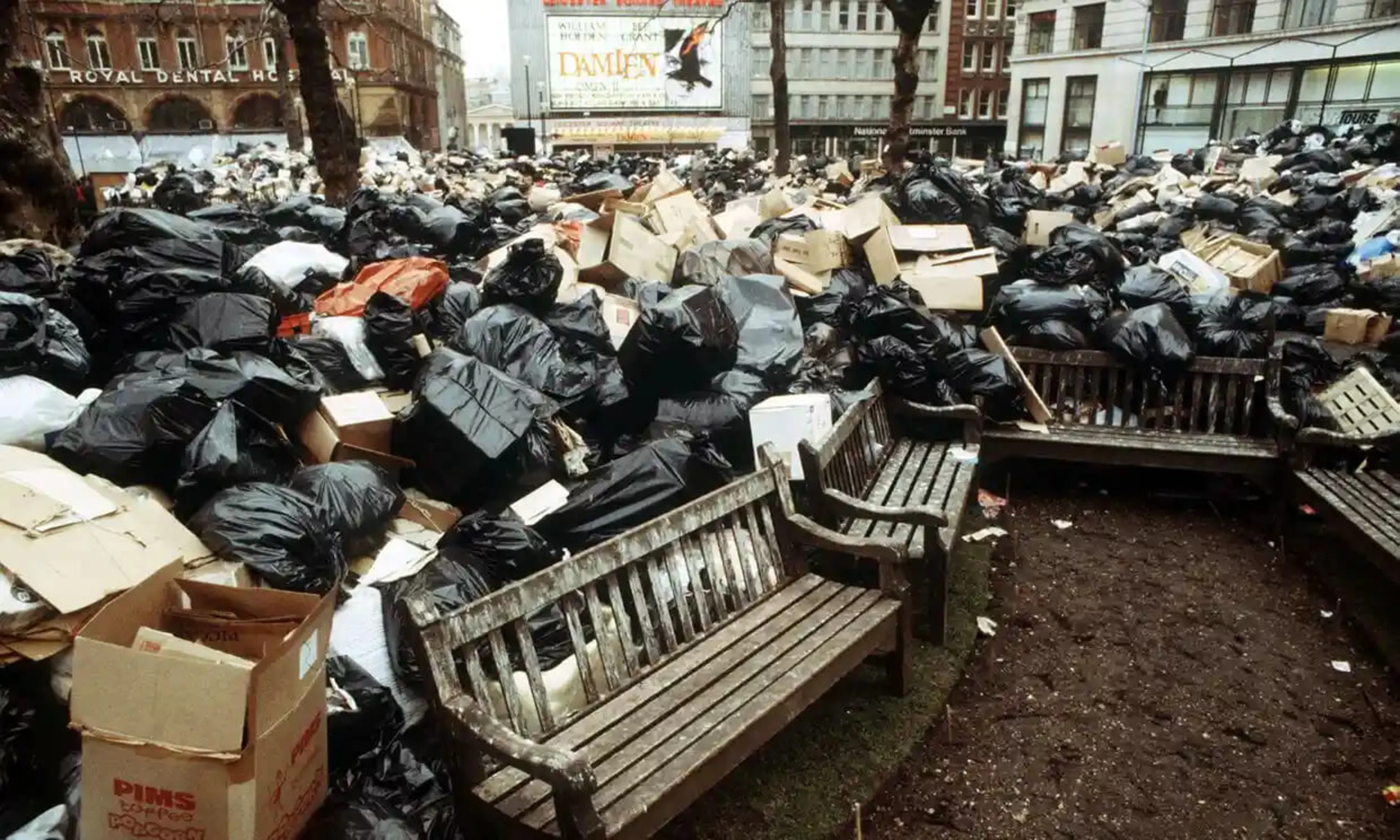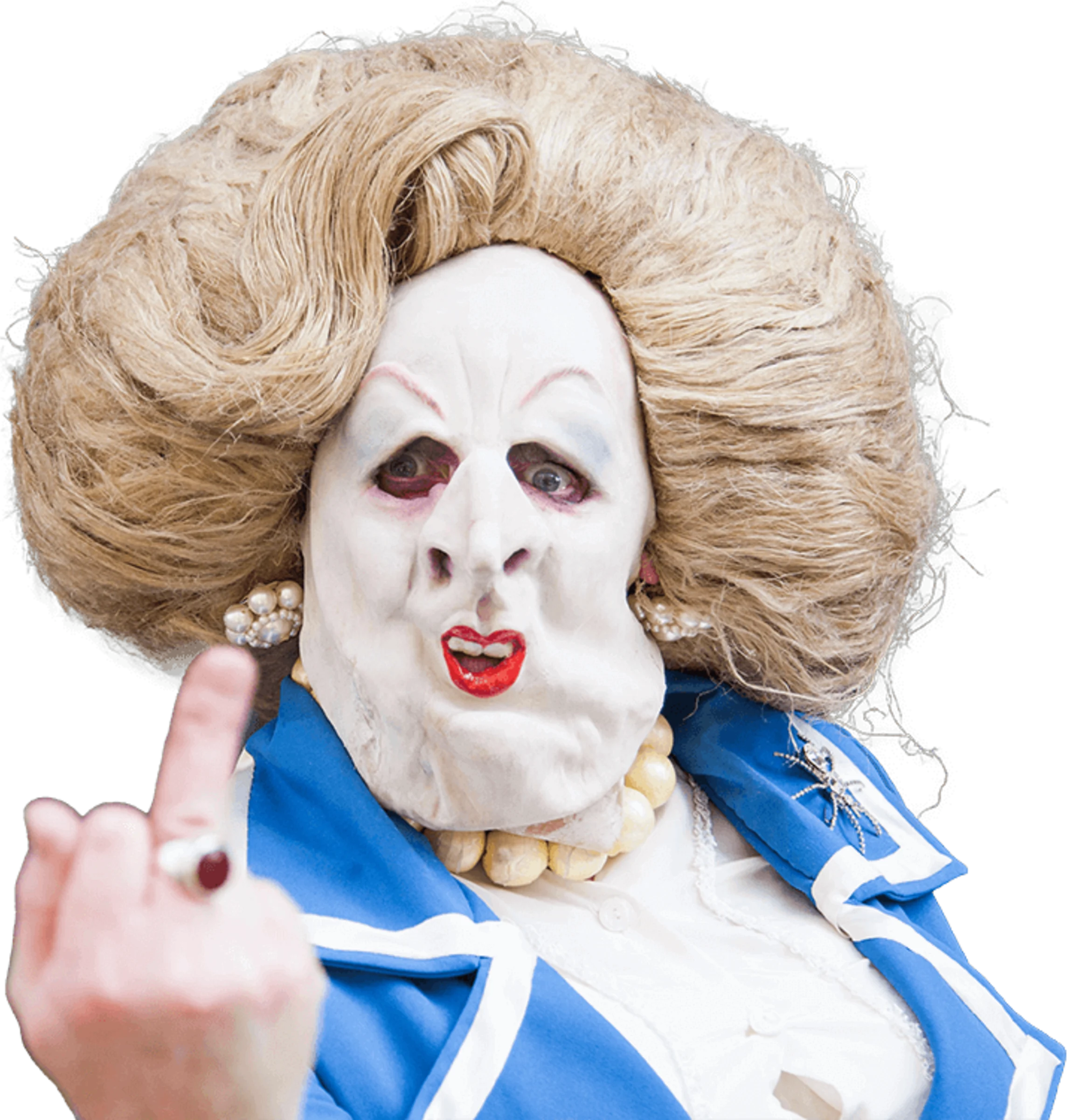Nowhere in politics is the iron grip that the Iron Lady has on the Conservative Party replicated. Neither President Reagan nor Kennedy so dominate their respective parties. Even Churchill’s influence is not so far-reaching and ironclad as Mrs Thatcher’s is throughout both the Tory rank and file and its elected politicians. However, the subject of this worship is entirely of the Tories’ own imagination. As more and more time passes since her death, what Mrs Thatcher is believed to have been is ever further from reality and ever closer to a ridiculous, cartoonish parody, completely detached from reality.
The past six months’ political events provide plenty ample examples of this. As we have seen strikes across a number of different sectors of the workforce, we can imagine Liz Truss having stood in front of the mirror each morning and imagine herself as Mrs Thatcher, with her hair swept back in the classic Thatcher style, saying quietly to herself “the lady’s not for turning” and visualising herself doing battle with the unions, with Mick Lynch in his role as a pantomime villain, reprising the role played by Arthur Scargill all those decades ago. The unhealthy and irrational obsession with Mrs Thatcher is so strong among the Conservatives that it is not entirely comical to imagine Rishi Sunak steeling himself into the garb of the iron lady in front of the mirror in the same way.

Comedy aside, anyone familiar with the mindset of the modern Conservative Party knows that as strikes have sprung up with various different unions downing tools, Conservative politicians, from the backbenches to the cabinet table, will have known the script that is laid out for them. Mrs Thatcher’s victory over the unions in the 1980s is so mythologised that there was only one course of action for the Tories in recent months: an inaccurate cosplay, with a government combative and defiant in the face of the unions. Thus we saw a belligerent approach with Liz Truss remarking in September of last year that strikers should “get back to work” and Rishi Sunak unveiling legislation to curb the power of the unions by introducing minimum service levels in the public sector.
This is all contrary to the truth of Mrs Thatcher’s battles with the unions. The unions had been crippling Britain for a generation. During the winter of discontent in 1979, roads and ports were shut down by picketing workers, rubbish piled up in the streets and petrol stations closed throughout Britain. In 1974, strikes saw such severe shortages of energy that a three-day week was instituted. My father, born in 1962 once told me that my grandparents attended a standup comedy gig of a comedian who was a person of colour. This comedian’s gigs were so regularly disrupted by power cuts that he would smile and ask the audience whether they could see his teeth in the dark. On the occasion my grandparents attended during the strikes, there was a power cut, and the joke was made. Outdated and offensive jokes aside, the story further serves to demonstrate the regularity and normalisation of power cuts at the time. The situation of the 1970s and 1980s was completely alien to the current waves of strikes. The unions could not be allowed to continue. The power of the unions had to be fought and broken. And they were. Heroically so, by Mrs Thatcher. However, it took her more than half of her long premiership to do this and it was necessary. The Conservatives have employed combative rhetoric ever since the strikes began and within months have brought forward severe and punitive anti-union legislation. Reckless. Overreactive. All because they saw their chance to emulate their hero.

Further still have the Conservatives missed the mark in recent months in an effort to parody Mrs Thatcher. During her short premiership, Liz Truss unveiled a menagerie of tax-cutting, supply-side policies. Income tax? Cut. National Insurance? Cut. Corporation tax? Cut. Pension fund regulation? Cut. Stamp duty threshold? Lifted. Limits on banker’s bonuses? Gone. Yes, it’s true, Margaret Thatcher was a swashbuckling, tax-slashing, free-marketeer. However, taxes prior to her term in office were inordinately high, she corrected that issue. The same is not true of taxes prior to the blundertruss taking office. Liz Truss also forgot another defining element of Thatcherism: fiscal responsibility and control of the money supply. Mrs Thatcher would analogise the economy to household economics. Truss’ Britain was more of a house fire.
Why does this false, mythologised version of Mrs Thatcher persist? Perhaps due to the volume of time that has passed. Mrs Thatcher, one of the defining women of the 20th century, became Conservative leader in February 1975, almost fifty years ago (and interestingly less than a month before the United Nations proclaimed international women’s day). But- the sheer magnitude of chronological detachment from her premiership is not sufficient to explain why Mrs Thatcher is so mythologised. Nor was it because of her unique brilliance, if that is how you choose to view her. Republicans recognise Reagan as a hero to much the extent as Tories idolise Mrs Thatcher, but his legacy is not reduced to myth in the same way. Nor Kennedy. Nor Churchill. The myth of Thatcher is a confounding and confusing outlier.
Read next
I'm fed up with 'Forever'. Where's our Übermensch?

Sion Marsh
We need to end our obsession with American politics

Matt Jefford
Why I'm confident about the future

Archie Rankin
Weekly emails
Get more from Max
The Fledger was born out of a deep-seated belief in the power of young voices. Get relevant views on topics you care about direct to your inbox each week.
Write at The Fledger
Disagree with Max?
Have an article in mind? The Fledger is open to voices from all backgrounds. Get in touch and give your words flight.
Write the Contrast

